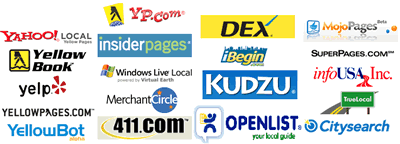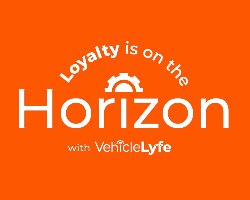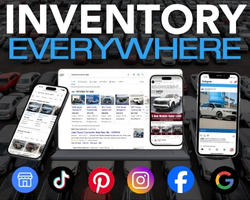Guest Posting by Rebecca Lieb

Everyone’s Local Somewhere
As far back as 2004, local search accounted for up to 25 percent of commercial activity on the Web, according to a Kelsey Group study. No wonder large and small players alike have been striving to build a better local search mousetrap. Of all the large and small search verticals out there, local is the fastest-growing and probably, most important.
It’s not hard to understand why. A dealership in Des Moines may have a Web presence, but it’s unlikely he’ll be selling cars in Cleveland. If your engine needs a tune up in Denver, a mechanic in Pittsburgh isn’t what you need now. The major search engines know this, in fact. Various geolocation technologies are baked into their algorithms. So when someone shopping for a Honda Element in Des Moines searches for a “Honda dealership,” one of the Big Three search engines is likely to figure out where she is (IP addresses are one indicator) and shove that local dentist’s site to the top of the results.
Pretty neat, right?
Well, it works for the dealer the search engines knows is in Des Moines, and therein lies much of the wisdom when it comes to optimizing for local search: defining locality.
It’s not only local service providers, shops, and tradespeople who benefit from local search optimization. So too do national brands. You don’t just want to visit Land Rover, you want to visit the nearest Land Rover dealer. You don’t research financing at Mercedes corporate headquarters, but at the local franchise. Local search is important to every business, organization and service with a localized customer base — or bases.
It’s a pity more businesses don’t know about and take advantage of local search, which can level the playing field considerably between large national businesses and small local providers. Given a degree of search savvy and a Web presence, a tiny neighborhood auto parts shop could have just as much visibility and clout only as NAPA. It’s a matter not only of knowing how to play the game, but also of knowing the game exists in the first place.
A down-and-dirty (as well as highly effective) technique to optimize for local search is not to rely of a single “Contact” page for local information. A local business can add a footer to every single page of its web site that contains its street address, city, state, Zip code and local phone number, including area code. Quite possibly, it’s appropriate to use a degree of location in title tags as well, e.g. Joe’s Auto Parts, Dallas/Forth Worth TX.
Locally oriented keywords and phrases are also critical, and should take into account the various terms people use to refer to localities, which can be broad as well as specific. Here’s a hypothetical example with local keywords highlighted:
Chicago’s premier Ford dealership serving all regions of the Chicagoland area. We offer Ford Vehicle Sales and Service in Lincoln Park, Lakeview, Wicker Park, the South Side, Old Town and the Near North side of Chicago. We also serve the Chicago suburbs of Evanston, Glencoe, and Highland Park.
No one in the Chicago area ever refers to the region as “northern Illinois.” But if they did, you can bet our fictitious Ford dealer would have cobbled the state’s name into his keywords as well. He’s betting on the fact his customers aren’t just searching for a “chicago ford dealership” in a town that big, but are winnowing their searches down to a more localized level, such as neighborhood.
Also bear in mind that local is as local does. A New Yorker in Zip code 10019 may want to order a pizza. New York is a large, but concentrated urban area. Few residents of the city would be willing to travel more than a handful of blocks for a pizza. In Montana or New Mexico, by contrast, a customer may be willing to drive miles for the same pie. Yahoo Local knows this, and sorts results by distance.
When coming up with a local optimization plan, it’s critically important to understand what local is for the area in question.
A first step in local search optimization ensuring your business is listed with the major search engines as well as with the Internet Yellow Page (IYP), the source of much of the local data used by search engines as well as other online directories and listing services. Do they have the correct information? Is your listing linked to your web site? Businesses with multiple locations in a single metro area can benefit from having separate directory listings for each and every location.
Don’t overlook local listings on popular directory services. Citysearch, Yelp, Superpages, Judy’s Book, Yahoo Local, travel guides, regional Web sites such as Boston.com and Nola.com (both run by major newspapers), ShopLocal, Chambers of Commerce, and local trade associations and other business groups.
For many local businesses, user-generated content and star ratings are a critical component of search results. The more — well, the more positive ones — the merrier. Ratings and reviews create additional relevant content associated with a business or listing, deeper descriptions, third-party authority, and can often be sorted by rating.
There’s no reason not to get the ball rolling by asking friends and family to begin reviewing or rating your business. A hairdressing salon in my neighborhood has a sign on the counter politely asking clients to add their comments about the business to Citysearch. In addition to creating greater search visibility and content, third-party reviews amount to a form of word-of-mouth marketing, one of the most persuasive and influential types of persuasion out there. It’s worth spending time developing ratings and reviews, particularly in a local context.
Further emphasize locality by adding a page (or perhaps adding to your contact page) detailed directions for finding your business or office location. Write these out in detail:
Lakehurst Chevrolet is near the Wakeland County Shopping Mall in the Bellevue neighborhood of Lakehurst, MD. To find us, drive west on Hometown Drive past the Grangeville Civic Center, then turn left on Elm Street. You’ll find us at 425 Oak Street, Lakehurst, MD, 12345.
Add a link to a map service (Google, Yahoo, MSN, Mapquest, etc.). And when linking to the directions page, “click here for directions” isn’t good enough. Instead, use “click here for directions to Lakehurst Chevrolet.”
About the Author: Rebecca Lieb oversees the U.S. operations of Econsultancy, and was VP & Editor-in-Chief the The ClickZ Network. Rebecca is also the author of a new book The Truth About Search Engine Optimization.









